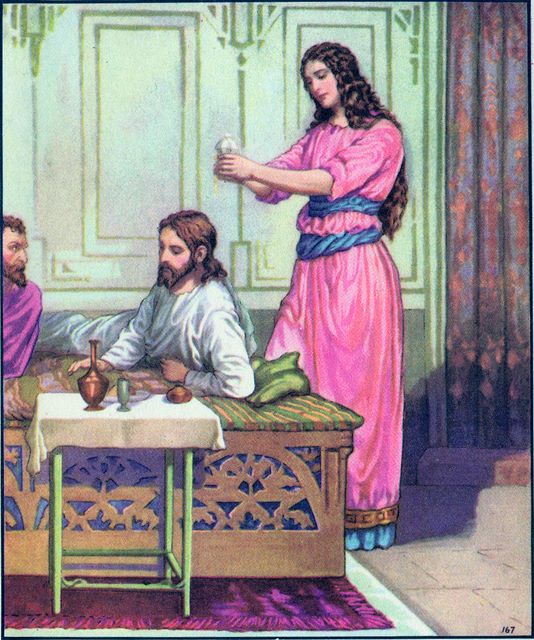
5th Sunday in Lent
Today is the beginning of the lead up to Easter, Jesus is leaving Galilee, leaving safety and heading to Judea which is not safe. Why? Because he loves his friends. Today we read (listen and watch) at an incident in the life of Jesus as recorded for us in John’s gospel chapter 12.
In our Gospel today, we find Mary of Bethany kneeling at Jesus’ feet, pouring out a costly perfume and wiping His feet with her hair. It’s a deeply intimate and extravagant gesture, so much so that Judas Iscariot protests the waste, claiming the perfume could have been sold to help the poor. But Jesus defends Mary’s act, recognizing it as a prophetic preparation for His burial.
This scene is full of contrasts: love and greed, sacrifice and self-interest, honor and contempt. Mary gives without counting the cost; Judas hides selfishness behind a veneer of piety. Jesus, on His way to the cross, receives this act of love as a holy anointing.
In today’s world, we too are faced with the tension between doing good practically and loving extravagantly. Sometimes we are called to practical service, feeding the hungry, clothing the poor. But other times, we are invited into moments of deep devotion, seemingly unproductive, but spiritually rich. Mary models what it means to give the best of ourselves to Christ, not just out of duty, but love.
As Lent draws to a close and Holy Week nears, this passage invites us to reflect: Are we willing to pour out our own “costly perfume,” our time, attention, love, for Christ? Are we willing to look foolish in the eyes of the world for the sake of faith? Like Mary, may we choose the better part, not to impress others, but to honor Jesus with our whole hearts.
 Welcome
Welcome Calendar
Calendar Today's Word
Today's Word Lauds
Lauds Terce
Terce Sext
Sext None
None Vespers
Vespers Compline
Compline Matins
Matins